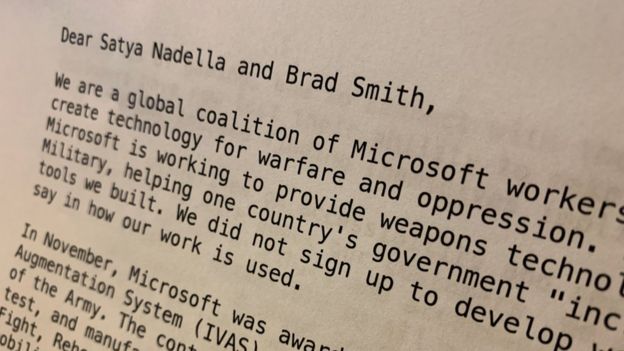 Father Steve Kelly and Patrick O’Neill are scheduled to be sentenced in Brunswick, GA on October 15 & 16 in the early afternoon. It is expected that the two will be combined on October 15. The remaining four defendants, Carmen Trotta, Martha Hennessy, Mark Colville, and Clare Grady, were granted continuances yesterday by Judge Wood to Nov. 12 & 13 because of COVID-19. Father Steve Kelly and Patrick O’Neill are scheduled to be sentenced in Brunswick, GA on October 15 & 16 in the early afternoon. It is expected that the two will be combined on October 15. The remaining four defendants, Carmen Trotta, Martha Hennessy, Mark Colville, and Clare Grady, were granted continuances yesterday by Judge Wood to Nov. 12 & 13 because of COVID-19.The defendants ask, “In the interest of public safety, and out of love for our supporters during this Covid 19 pandemic, the seven Kings Bay Plowshares members request that no one come to Brunswick for the sentencing hearings scheduled for Oct. 15-16. We do, however, encourage you all to join the Oct. 11 pre-sentencing Zoom meeting. Thank you all for your love and support, which sustains us.” There is expected to be an audio link from the court to listen to the proceedings as was done with Liz McAlister in June. The call-in number and times will be posted on the website when we get them. A virtual Festival of Hope is planned for Sunday, October 11, at 5pm EDT prior to the sentencing of Fr. Steve Kelly and Patrick O’Neill. It will now be hosted on the Code Pink Zoom channel. It will also be on the Code Pink YouTube channel and on the KBP Facebook page. Patrick and several of the defendants will appear. Fr. Steve Kelly will send a message from jail. Marcia Timmel, Susan Crane and Steve Baggarly, plowshares activists, will speak. There will also be a slideshow and music and a blessing.The new Zoom link:https://us02web.zoom.us/j/86135062251The registration will be www.codepink.org/kingsbay_festivalofhope (It won’t be active until later today (Friday). It is not necessary to pre-register but everyone who signs up in advance through that link will get a reminder text and email on Sunday. It can also be watched on CODEPINK’s YouTube channel https://www.youtube.com/channel/UCSTEGsYwuvPpwjtIufg7gzA https://us02web.zoom.us/j/86135062251 For those in the Brunswick area more information on local activities around the sentencing can be obtained through Sarah Cool: 404.449.7893 coolsarahs@gmail.com Fr. Steve Kelly has now served 30 months in county jails and so has satisfied the sentencing guidelines the government is proposing for him. However, he has a probation violation where he is facing up to six months stemming from a prior trespass conviction at Kitsap, WA at the West coast Trident base. It is not yet known what will happen with this. Sad to miss the Brunswick Court sentencing? Here are 25 action suggestions that you CAN do with your community in support of the KBP7 to make our world nuclear weapons free!https://kingsbayplowshares7.org/2020/10/25-things-you-can-do-to-support-the-kbp7/ EMAIL: kingsbayplowshares@gmail.comWEBSITE: www.kingsbayplowshares7.orgFACEBOOK: https://www.facebook.com/KingsbayplowsharesTWITTER: https://www.twitter.com/kingsbayplow7 |
Tag Archives: War profiteering
Microsoft employees have demanded the company back out of a deal to provide HoloLens to US Military
 HoloLens allows the user to see digital images over real-world backgrounds
HoloLens allows the user to see digital images over real-world backgroundsAt least 50 Microsoft employees have demanded the company back out of a deal with the US military to provide augmented reality technology.
In particular, the group has said the firm’s headset, HoloLens, must not be used to “help people kill”.
In November, Microsoft agreed a $479m (£367m) deal to develop a platform that would involve soldiers using about 100,000 headsets.
“We always appreciate feedback from employees and have many avenues for employee voices to be heard,” a Microsoft spokesperson said.
A letter sent around Microsoft on Friday and seen by the BBC has been backed by employees across multiple departments.
“Microsoft must stop in its activities to empower the US Army’s ability to cause harm and violence,” it reads.
“We did not sign up to develop weapons, and we demand a say in how our work is used.”
HoloLens, first released to developers in March 2016, allows the wearer to see digital images laid over the real world. Microsoft’s chief executive Satya Nadella is expected to announced HoloLens 2 at an event in Barcelona on Sunday, ahead of the Mobile World Congress trade show.
Military concern
The letter demands Microsoft cancel the Integrated Visual Augmentation System (IVAS) contract, stop developing “any and all” weapons technologies, and draft a public policy statement on the matter.
It also calls for an “independent, external ethics review board” that would oversee compliance with that policy.

It is not the first time that Microsoft employees have spoken out against the firm’s work with government entities.
In June, with the Trump administration mired in controversy over family separations on the US-Mexico border, staff demanded the firm cease providing services to the US Immigration and Customs Enforcement agency (ICE).
Mr Nadella eventually denounced the White House’s actions and said Microsoft’s technology was only being used for standard office-related tasks.
‘War profiteers’
With this latest employee rebellion, Microsoft will not have such an easy defence. According to the contract, the goal is to “increase lethality by enhancing the ability to detect, decide and engage before the enemy”.
Microsoft is understood to have outbid rival augmented reality developers, such as Magic Leap.
Microsoft’s president and top lawyer Brad Smith has said employees who are not happy with the nature of the firm’s military work would be allowed to work in other departments. However, in the latest letter, employees said that suggestion was flawed.
“Microsoft fails to inform its engineers on the intent of the software they are building.
“There are many engineers who contributed to HoloLens before this contract even existed, believing it would be used to help architects and engineers build buildings and cars, to help teach people how to perform surgery or play the piano, to push the boundaries of gaming, and to connect with the Mars Rover (RIP).
“These engineers have now lost their ability to make decisions about what they work on, instead finding themselves implicated as war profiteers.”
Microsoft is not the only company to face internal anger over military work. Last year, Google did not renew a contract to work with the US on Project Maven, an artificial intelligence program in development with the Pentagon.
However, Amazon chief executive Jeff Bezos said his firm would enthusiastically work with the military.
“This is a great country – it needs to be defended,” he said during an on-stage interview.
___
Follow Dave Lee on Twitter @DaveLeeBBC
Do you have more information about this or any other technology story? You can reach Dave directly and securely through encrypted messaging app Signal on: +1 (628) 400-7370
5 things to know about threatened US-Russia nuclear weapons deal, a goldmine for US arms producers. Yay!
Trump wants to withdraw from the INF treaty that was signed over three decades ago by the US and Soviet leaders.
![5 things to know about threatened US-Russia nuclear weapons deal Gorbachev and Reagan signed the Intermediate Range Nuclear Forces Treaty in 1987 [File: AP]](https://www.aljazeera.com/mritems/imagecache/mbdxxlarge/mritems/Images/2018/10/21/36df8065e10147b5831c6347f6ebf855_18.jpg)
US President Donald Trump has saidWashington will withdraw from a 31-year-old nuclear weapons agreement with Moscow, accusing Russia of violating the treaty and demanding the inclusion of China.
Here are five things to know about the Intermediate-Range Nuclear Forces Treaty (also known as the INF treaty):
1. How did the agreement come about?
The INF treaty was signed in December 1987 by the then-US President Ronald Reagan and Soviet leader Mikhail Gorbachev.
It resolved a crisis that had begun in the 1980s with the deployment of Soviet SS-20 nuclear-tipped, intermediate-range ballistic missiles targeting Western capitals.
By signing the agreement, Washington and Moscow swore off from possessing, producing or test-flying a ground-launched cruise missile with a range between 500 and 5,500km.
2. Why is the US withdrawing from the treaty?
US officials believe Moscow is developing and has deployed a ground-launched system in breach of the INF treaty that could allow it to launch a nuclear strike on Europe at short notice.
Russia has consistently denied any such violation.
Trump said on Saturday that it was only fair for US to develop the weapons since Russia and China (not a signatory of the treaty) were already doing it.
3. How does Russia feel about the INF deal?
Moscow has long been accusing the US of violating the nuclear agreement, pointing to a NATO missile shield in Romania that could launch nuclear missiles at any time.
In 2007, Russia even threatened to withdraw from the INF treaty.
On Sunday, an unnamed Russian foreign ministry official told state news agencies that Washington has been “deliberately and step-by-step destroying the basis for the agreement” for many years.
4. What can the US withdrawal from the nuclear treaty lead to?
The move will end the prospect of the renewal of the New Start agreement between Moscow and Washington which is set to expire in 2021, as the INF treaty is its backbone. Signed in 2010, New Start requires both nations to cut their deployed strategic nuclear warheads to no more than 1,550.
Russian Senator Alexei Pushkov wrote on Twitter that the move was “the second powerful blow against the whole system of strategic stability in the world” after Washington’s 2001 withdrawal from the Anti-Ballistic Missile treaty.
Gorbachev, the co-signatory of the INF treaty, said on Sunday it would be a mistake for Washington to quit the deal, and that it would undermine work he and US counterparts did to end the arms race.
5. Can the nuclear deal be saved?
John Bolton, Trump’s national security adviser, is scheduled to meet Russian leaders, including Foreign Minister Sergey Lavrov and Security Council Secretary Nikolai Patrushev, this week in Moscow.
The trip is likely to show whether there is a chance for the deal to be saved. Trump’s announcement on Saturday suggested that he hoped for the re-negotiation of the terms.
Last week, The Guardian reported Bolton, a long-standing opponent of arms control treaties, was pushing for the US withdrawal over alleged Russian violations.
US Defence Secretary James Mattis has previously suggested that a Trump administration proposal to add a sea-launched cruise missile to Washington’s nuclear arsenal could provide the US with leverage to try to persuade Russia to come back in line on the arms treaty.
SOURCE: AL JAZEERA NEWS
What the fuck? Is it 1979 all over again?
Congress OKs Record Military Funds in $1.3T Spending Bill (Remember the warnings of Eisenhower, right?)

Congress approved a $1.3 trillion spending bill early this morning—averting what would have been the third government shutdown of the year, less than a day before it was set to take effect. The bill won bipartisan support in both houses, clearing the Senate on a 65-32 vote just after 1 a.m., after more than two-thirds of House lawmakers approved it earlier in the day. President Trump has signaled he will sign the bill, which will boost spending on weapons and war to an all-time high, while increasing funding for a U.S.-Mexico border wall. It does not address the plight of immigrants brought to the U.S. as children—so called DREAMers—a key demand of immigrant rights groups and some Democrats. The bill also contains modest gun control measures, including tightening a background check measure known as “NICS”—but does not provide for universal background checks for prospective gun buyers.